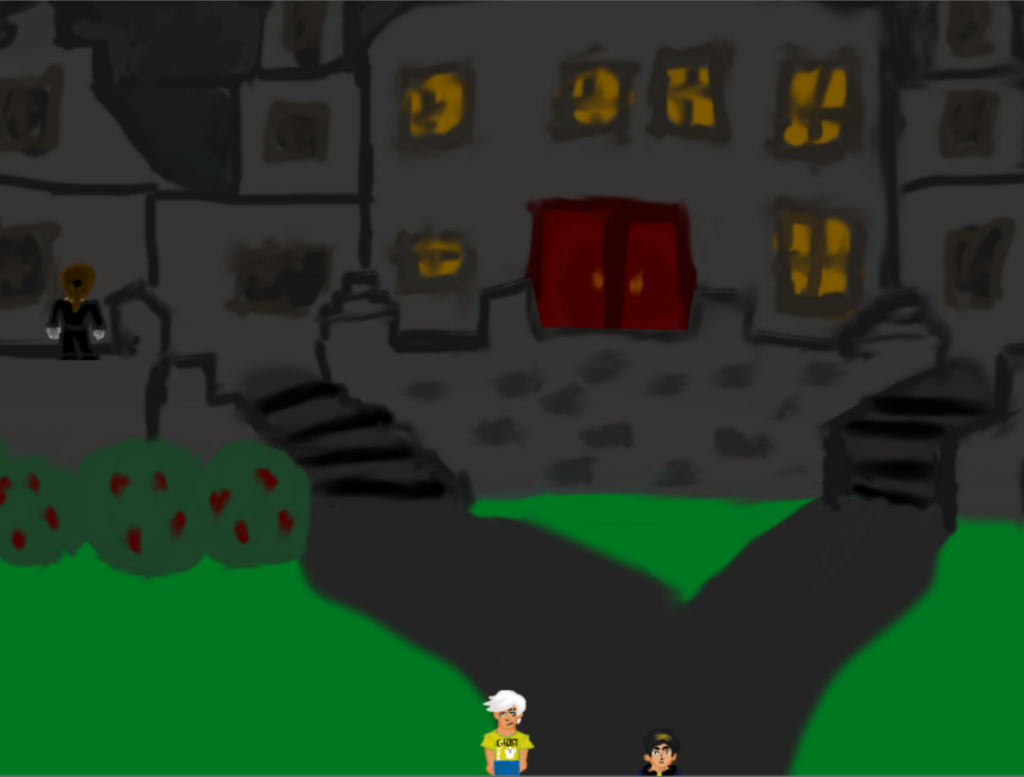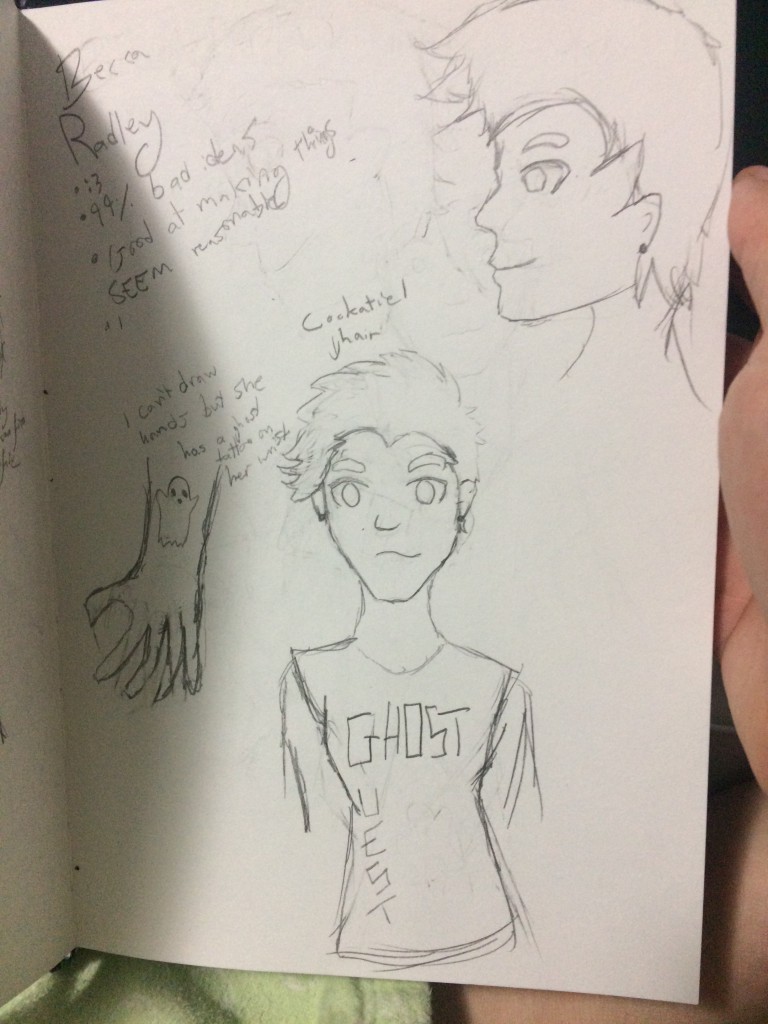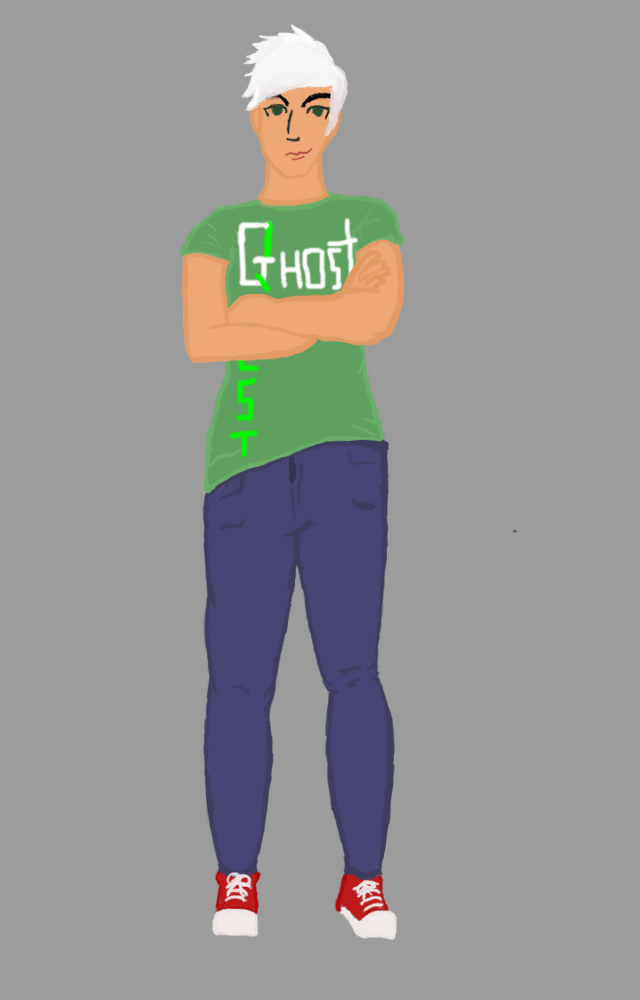My game is about a pair of ghost hunting twins named Becca and Casper Radley. Their producer has informed them that they must raise the funds for their next season on their own. Becca hatches a plot to convince rich couple Nigel and Mira Blackwood that their house is haunted so that they will sell it for an affordable price. Once Becca has purchased the house, she intends to “debunk” the haunting and resell it for the full cost. For unknown reasons, the Blackwoods must move out in exactly one week, and so the twins have seven days to scare them into belief.
This game plays in two different sections. At night, Casper places scary traps and triggers them at the correct intervals to scare the Blackwoods before he is discovered by them. During the day, Becca talks to the residents of the town, performing tasks (mini-games and puzzles) to convince them to tell her more about the history of the Blackwood Mansion.
In the portion of the game which I programmed this term, Becca speaks with the residents of the mansion in order to establish her cover as a ghost hunter. In order to investigate the house fully she must gain access to the basement, and to do so she distracts the maid Emily with a leaking pipe. She can also gain Emily’s assistance by admitting that she is running a con scheme. These actions introduce the player to the fact that they will need to solve puzzles in order to convince people to work with them, as well as the fact that the tone of their interaction will have consequences.
At the beginning of night sections, the player (as Becca) will be able to tell Casper what facts about the “ghost” she has learned during the day, and he can use these bits of information to craft a more believable haunting.
Ideally, the dialogue in the game would have basic choices and question trees, so that the player can pursue the lines of inquiry that are relevant to the approach they are taking to the haunting. In this build of the game that is not developed, so I’ve tried to distill the dialogue down to what is important for completing the level.
The McGuffin in the game is probably the house. The house has a worth to it for the Radleys – in that it will allow them to achieve their end goal of continuing their show. Additionally, it is uncovered over the course of the game that the house is a centerpiece for several occult happenings in the town – a demon summoning, a murder, and a bank robber being killed to name a few. Not only is the mansion the pursued item, it is also in the end the cause of all the weirdness which Becca is channeling as she creates her ghost.
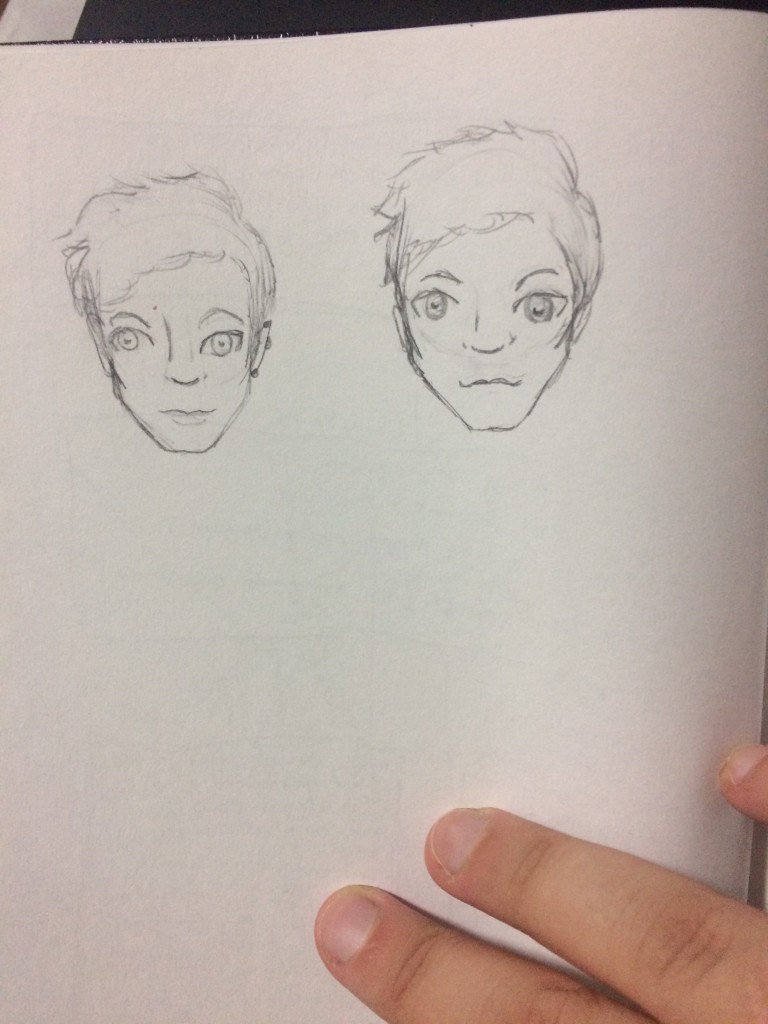
Primarily, the abstraction was on the artistic front. The characters have simplified design so that they can be drawn easily. Most of the expressiveness is seen in the dialogue sprites, which also have a few poses and rely primarily on facial expression to convey opinion.
I also abstracted the backgrounds, and the relationship between characters and backgrounds. The scenery has a smudged look, all of the colors blending in to each other. All of the characters who are a part of the town also have this appearance to them to a certain degree, aside from the Radleys. This – along with the fact that the Radleys use different sections of the color palette I composed for the scene than the other characters do – showcases that they are intruding onto the small town space.
The blending also created a sense of otherworldliness. This mansion is supposed to be “haunted”, and by blurring the lines it becomes more difficult to distinguish reality in the house. By creating this atmosphere, and throwing in some strange happenings, the player begins to wonder if they are the only ghost in the mansion.
Truthfully, a lot of the design choices I made were due to the limitations of my own artistic ability. In a way, though, not being able to do detailed lineart helped me.
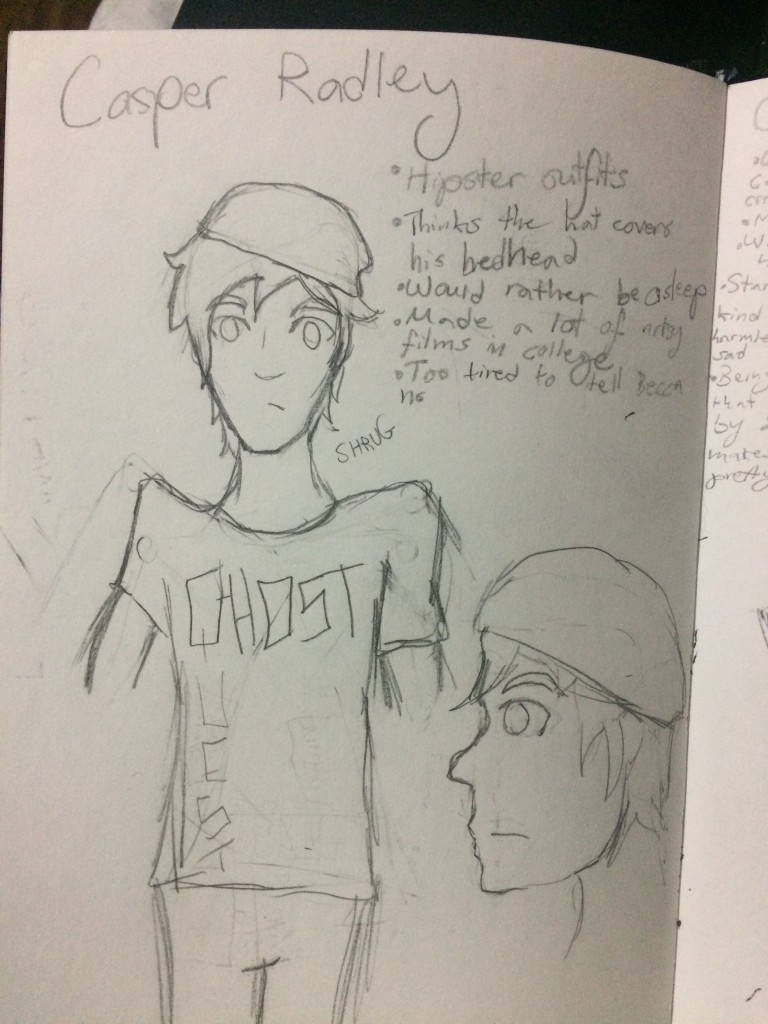
The positive feedback loop is in the “belief” system of the game. Unlocking levels of belief unlocks dialogue options which can add effects to Casper’s hauntings. These would make it easier to win the game.
The negative feedback loop is also based around the belief system of the game. As the player builds up belief with The Blackwoods, they also build up belief with the priest Father Jacobson. While The Blackwoods are more talkative the more they become convinced of the haunting, Jacobson becomes more wary. As being caught results in a game over, this means that though successes become more rewarding as the game goes on mistakes are more costly as well.
Because of the loops of belief, a player can unlock different facets of the haunting at different points in the main storyline. If they focus on making Father Jacobson believe (which is required to get the most positive ending, in addition to being something which increases the difficulty of the game), but not on The Blackwoods then the game becomes more difficult but also reveals things about his story earlier on. This gives that player, who knows about his story on say day 4, a different perspective on the things he does than someone who focuses on The Blackwoods and never learns his motives.
Through these mechanics a player defines their own experiences. They can make the story more of a challenge for themselves by picking less beneficial dialogue options and creating a more hostile haunting environment, which will teach them different and perhaps enlightening things. Or, they can make the story easier, which also unlocks facets of the story.
I drew a bit from Garden of the Forking Paths with my ideas for the order of events things could occur in. In Garden, the protagonist muses on multiple realities where the characters had developed different relationships. Because of this, I wanted to experiment with how Becca’s relationships with characters interacted her relationships with other characters. In real life, a person’s current relationships affect their development of new relationships, and so I want to play with the idea that developing her interactions with for example The Blackwoods would also affect her relationship with the other townspeople.
